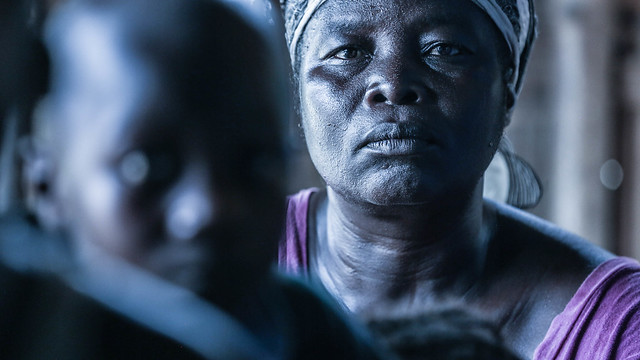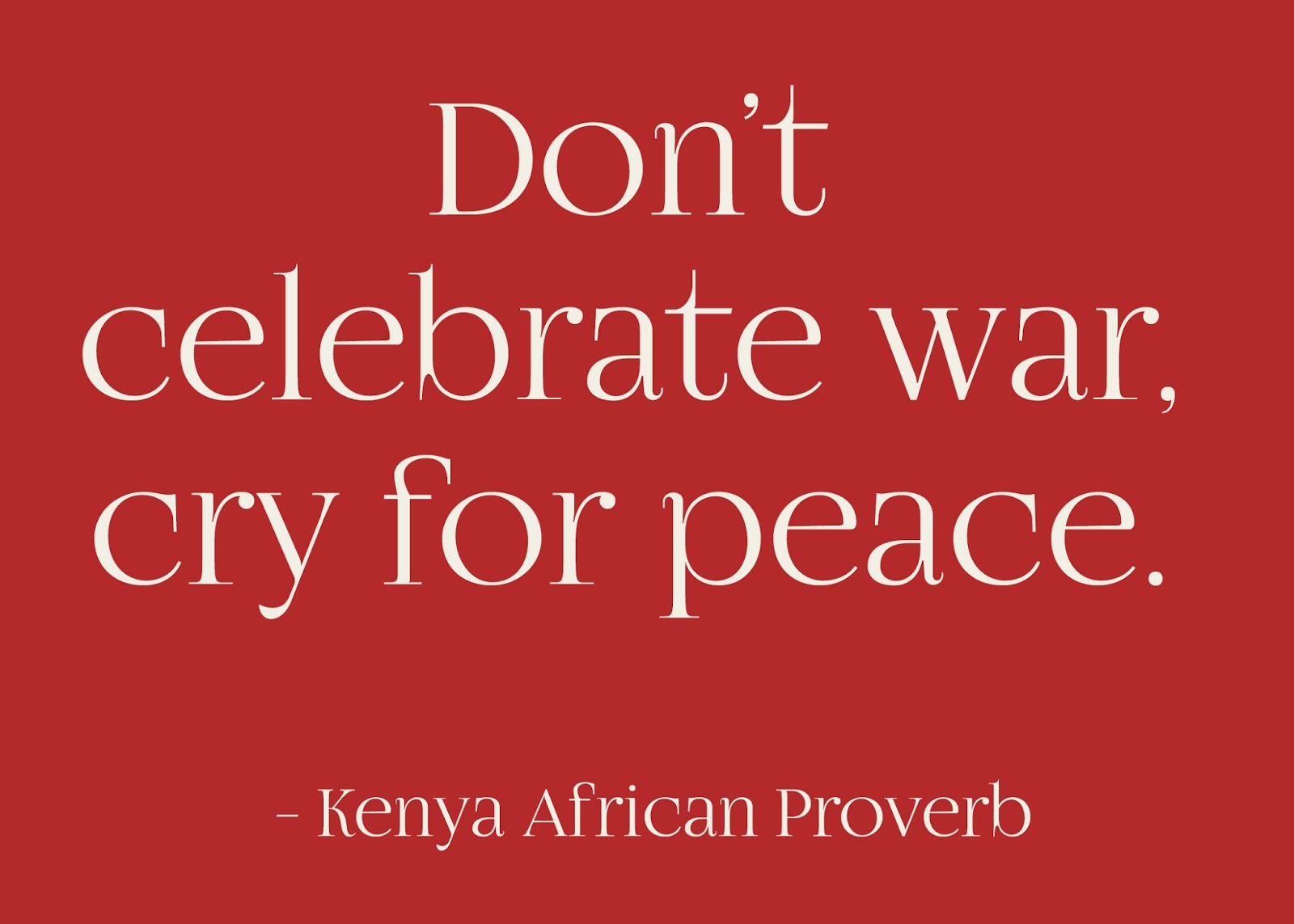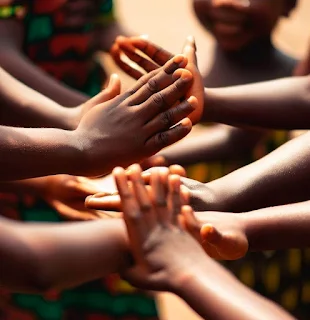Begin Counting with Your Pinky
In Lesotho, counting on your hand is done beginning with the pinky and progressing toward the thumb. Looking elders directly in the eye is rude in The Gambia and pointing your feet at someone while sitting is impolite in Eswatini.
Africa's food, dress, language, and cultural practices are taken very seriously. Because tourists come from particular societies, groups, and places, they must be mindful of their beliefs and practices. Culture is such a powerful influence on our outlooks and behaviors that we are often unaware of believing our perspectives are just the way things are.
How a person addresses an elder influences how they are perceived, and how a person greets another carries heavy connotations on how they are understood in Africa. Shared meals are integral to African social life. Understanding communal dining practices fosters a more profound comprehension of social bonds and the significance of hospitality.
21 different food, dress, language, and cultural practices around Africa.
Malawi
Making a circle with the thumb and index finger can be taken as an insult. It is associated with a reference to a particular bodily orifice and is considered disrespectful. Therefore, using this gesture can lead to misunderstandings and may be perceived as offensive or inappropriate in the local cultural context. In the USA, the OK hand gesture, commonly seen as a way of indicating that all is well, has now been classified as a symbol of hate associated with white supremacy.
The Gambia
Looking elders directly in the eye is considered rude. Similarly, in Guinea, Although direct eye contact is usually acceptable, refrain from doing so with elders. Maintaining eye contact with elders may be interpreted as challenging their authority or questioning their status. Avoiding direct eye contact is a way to show deference and respect for the wisdom and experience associated with age.
Zambia
Always greet before starting a conversation, and if a person approaches you, offer the initial greeting; however, men should withhold their hands when greeting a woman until the woman offers her hand.
Eswatini
If sitting on the ground, it is considered very rude to point one's feet at another person. In many African cultures, including Eswatini, the feet are considered the lowest part of the body, both physically and symbolically. Pointing them at someone, especially at their face, is seen as a sign of disrespect because it implies placing the least respected part of the body in a position of prominence.
Gabon
Standing close to a person during conversations is common in Gabon, where it is common for conversations to occur at very close distances. The concept of personal space is shaped by communal living, strong social ties, and a sense of community. People in Gabon feel comfortable standing or sitting nearby during conversations.
Uganda
Uganda's culture and etiquette allow people of the same sex to talk while lightly touching. It is expected to see people on the street talking while touching their hands, arms, and shoulders. When two people of the opposite sex talk, there is very little to no touching. The only appropriate touch is usually a handshake.
Democratic Republic of the Congo
In many African cultures, it is considered a breach of etiquette to begin eating before the eldest person present has been served their food and has started eating. This custom is rooted in the belief that respecting elders is vital to maintaining social harmony and demonstrating good manners. Therefore, one should always be mindful of this tradition and wait patiently until the oldest person has been served and started eating before starting to eat themselves.
Namibia
In formal environments, it's customary to address individuals by their last names; addressing them by their first name is considered too casual.
Libya
Critiquing someone directly or talking about private family matters in a public setting is generally considered impolite. Doing so can make others uncomfortable and may be seen as disrespectful towards the person being discussed. It is always best to address any issues or concerns privately and respectfully.
Kenya
In Kenya, as in many African cultures, giving gifts with your left hand is inappropriate. Instead, using your right or both hands is customary when offering a gift. This practice is seen as a sign of respect and good manners. So, if you are in a situation where you need to give a gift, make sure to keep this in mind and use your right hand or both hands to show your appreciation and respect towards the recipient.
Benin
Many people in Benin eat using the fingers of the right hand; eating or offering food to others with the left hand is considered rude. Similarly, in Morocco, traditionally, food is taken only with the right hand, with three fingers. Bowls of water are prepared for washing hands before and after meals. In Tanzania and Central African Republic, as with many African countries, the right hand is considered clean and used for eating, greeting people, and giving and receiving objects.
Lesotho
Counting on one's hands is done in the opposite order, as it is uncommon in many Western countries, beginning with the pinky and progressing toward the thumb.
Equatorial Guinea
Bowing your head to another is a sign of respect if greeting someone with a higher status. It is customary to bow slightly so that your head is lower than theirs.
Ethiopia
Elders are usually introduced first when making new acquaintances. Elders are often seen as repositories of wisdom and experience. Introducing them first is a way to acknowledge and honor the knowledge they have gained over the years. It reflects a cultural belief in learning from and respecting those who have lived longer.
Liberia
Communication in Liberia typically involves more physical contact than in America. It is not uncommon for a speaker to rest their hand on your shoulder. Similarly, in Botswana, handshakes are more intricate than in Western countries and involve the left hand placed under the right elbow.
Burundi
Dress is taken seriously; jeans, t-shirts, and running shoes are considered casual and only acceptable for outdoor and weekend activities. In Burundi, a strong emphasis on formal dressing is shown as a sign of respect and adherence to societal values.
Cameroon
Government officials are regularly referred to as Excellency instead of by surname. This honorific is commonly used when addressing high-ranking government officials, heads of state, ambassadors, and certain other dignitaries. Addressing government officials with honorific titles like Excellency adds a level of formality and respect to the communication. It acknowledges their position of authority and the importance of the office they hold.
Madagascar
If you point your index finger, it is rude unless it is bent. Pointing directly at someone or something with the index finger is considered impolite or disrespectful, but bending the finger is seen as a way to soften the gesture and make it less direct.
Understanding and appreciating different cultural practices is important because our culture significantly shapes how we see and do things. Sometimes, we don't even realize that our own cultural background influences us, and we might think everyone sees things the same way we do.
However, not considering other perspectives can lead to conflicts that could have been avoided. That's why it's crucial to recognize and respect the cultural practices of others. Doing so helps us build understanding, avoid misunderstandings, and create positive interactions in our diverse global community.
More links to articles you will find thought-provoking.
-
That African Fabric You're Wearing Isn’t African

-
About neck elongation rings

-
Lighthouses of Egypt and Morocco

-
Mental Illness in Africa Taboos

-
Kente cloth inspired by a spiders web






































